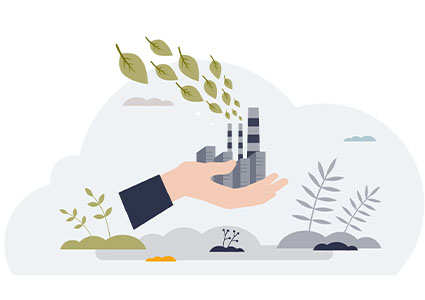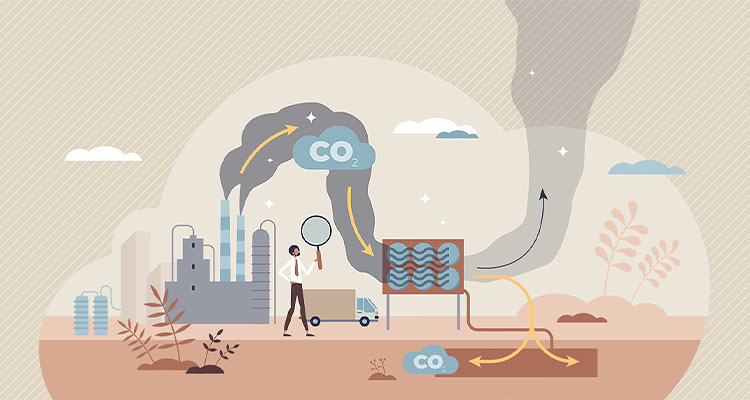Why we need to win hearts and minds on CCS. By Gary LeMaire
The IEA’s Net Zero by 2050 roadmap envisions a large role for carbon capture and storage (CCS) to provide a cost-effective pathway to address hard to abate emissions from existing assets. While government policies globally are becoming more favorable, and there has been a surge in CCS project announcements in the last year, several challenges continue to present serious headwinds for the rapid deployment of the technology at scale.
In some locations, large carbon emitters are unfamiliar with the technology and regulatory processes, meanwhile some financial institutions still do not consider CCS projects to be bankable leading to uncertainties around both pipeline and carbon storage investments. If combined with rising stakeholder opposition, often motivated by environmental and social concerns, these factors could also stymie progress. The industry must overcome these barriers and build greater trust among stakeholders if we are to achieve the ambitious global net zero targets.
The outlook in the US
While trust defies a simple definition, it is critically important to all aspects of life from individual wellbeing and interpersonal relationships to the effectiveness of teams and businesses. Yet new research from Princeton University and Worley points to a lack of understanding in CCS and evidence of mistrust between stakeholders involved in its delivery.
Princeton’s pulse survey of 4,200 people in the US – made up of the general public, people living near a CCS project, and CCS professionals – found that public awareness of CCS was low. Only 28 percent of respondents across each public sample had heard of the technology and only 17 percent knew of a specific CCS project.
There were also key differences in how stakeholder types perceive CCS risks and benefits, with professionals exhibiting a more positive view of the risks than the public. Risk becomes more acute when considering proximity; those living locally to a proposed CCS project perceived a higher level of risk than both the CCS professionals and the wider public.
 When asked whether the public distrusts CCS, professionals perceive public trust to be higher than is reported by the public itself. This difference in perception could lead to misalignment between projects and stakeholders, potentially impacting approvals. Poor communication may even be catalyzing the public to oppose projects. All survey respondents pointed to government regulations and corporate leadership as key sources of distrust.
When asked whether the public distrusts CCS, professionals perceive public trust to be higher than is reported by the public itself. This difference in perception could lead to misalignment between projects and stakeholders, potentially impacting approvals. Poor communication may even be catalyzing the public to oppose projects. All survey respondents pointed to government regulations and corporate leadership as key sources of distrust.
Building a framework for durable trust
If the industry is to accelerate the deployment of CCS, it will need to proceed with a higher degree of sensitivity to the concerns and communications needs of project stakeholders. The public’s lack of understanding, skepticism about, and perception of risks associated with CCS highlighted in the pulse survey, call for increased emphasis on providing clear, consistent and reliable information, along with much greater levels of transparency.
To develop a deeper understanding of how to achieve durable trust, Worley is supporting a new research program at Princeton titled ‘Net Zero Infrastructure at the Speed of Trust’ that will explore trust-based delivery frameworks for enabling net zero infrastructure development in ways that engage public leadership, private enterprise, communities, and special interest groups. Initial work suggests that these frameworks should be based on four proposed pillars of trust: engagement, alignment, adaptability, and transparency, which could build durable trust, help overcome reticence and drive action while safeguarding participants’ interests and ensuring compliance with laws and regulations.
Engagement would likely include the extent to which different stakeholders are involved in decision-making, including how concerns are considered and addressed. For CCS, project success relies on technical expertise, understanding, and allaying concerns. This will require a shift from the basic consultation many stakeholders experience today to a much deeper level of involvement beyond regulatory requirements. Authentic, inclusive, sensitive, and respectful communication is key.
Alignment would likely seek to build upon transparency, to explore how to facilitate the widespread sharing of benefits and risks and participatory decision-making. The Princeton research revealed that while professionals are positive about the benefits and have a measured view of the risks, this sentiment is not fully shared by the local and general public. Early, authentic engagement with host communities and other stakeholders is vital for improving the acceptance of CCS and the perception of its benefits and decreasing perceived risks.
Adaptability would likely recognize the importance of reflecting unique cultural, historical, legal, commercial and political nuances and how these interests should be safeguarded within CCS projects. The Princeton research shows that people are cautious about CCS, with unjust impact on communities raised by some as a reason for distrust, underlining the need for greater adaptability to ensure projects serve the interests of all stakeholders.
Transparency would likely cover the information that should be shared and how it should be verified. The Princeton research found that within the CCS professionals group, 64 percent are generally skeptical about the information provided by other CCS companies working on the same CCS project. Additionally, 59 percent of professionals express skepticism towards information from regulators, and 57 percent towards information from environmental organizations in relation to CCS projects. This level of distrust between industry collaborators will only slow progress if left unaddressed. Instead, information should be shared between all parties for the common good.
Trust is a critical enabler in meeting the massive infrastructure challenge that climate change presents. Trust is difficult to build and easy to lose. Developing guidance that highlights practical ways to build, maintain and leverage trust amongst participants will help drive CCS project deployment forward. It will help release the brakes on the energy transition and the world’s ability to deliver net zero infrastructure at the speed of trust.
www.worley.com
Gary LeMaire is Senior Director CCUS at Worley, a global professional services company of energy, chemicals and resources experts. It partners with customers to deliver projects and create value over the life of their assets. It bridges two worlds, moving towards more sustainable energy sources while helping to provide the energy, chemicals and resources needed now.
